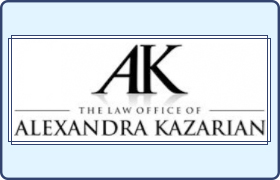Signal Hill Felony Lawyer, California, page 2
Sponsored Law Firm
-
 x
x

Click For More Info:
-
The Law Office of Alexandra Kazarian
15851 Whittier Blvd Whittier, CA 90603» view mapCriminal Law Aggressive & Experienced Criminal Defense
Trust the Law Office of Alexandra Kazarian with your Criminal Defense Case in Whittier & Los Angeles California.
800-773-5851
Daniel Moaddel
✓ VERIFIEDCriminal, DUI-DWI, Misdemeanor, Felony, Immigration
Moaddel Law is a criminal defense firm that provides comprehensive service from start to finish.
Daniel Moaddel is a criminal defense attorney serving Los Angeles, California.
Zachary James McCready
Misdemeanor, Felony, Criminal, Bankruptcy
Status: In Good Standing Licensed: 17 Years
FREE CONSULTATION
CONTACTCraig Wilke
White Collar Crime, RICO Act, Felony, Civil Rights
Status: In Good Standing Licensed: 34 Years
FREE CONSULTATION
CONTACTFREE CONSULTATION
CONTACTFREE CONSULTATION
CONTACTFREE CONSULTATION
CONTACTMargaret F. Mendoza
Criminal, DUI-DWI, Felony, Misdemeanor
Status: In Good Standing Licensed: 36 Years
FREE CONSULTATION
CONTACT
 Alexandra Kazarian Whittier, CA
Alexandra Kazarian Whittier, CA AboutAlexandra Kazarian Law Firm
AboutAlexandra Kazarian Law Firm Practice AreasExpertise
Practice AreasExpertise


